The Survey Room
A collection of password management and security-related surveys, eBooks, and reports spanning individuals and businesses.

Bitwarden regularly conducts original, third-party cybersecurity research. The data in these surveys represents the opinions of IT decision-makers, internet users across the globe, and the expansive Bitwarden community. Resources below also include grade-based evaluations of federal agencies and businesses from the Bitwarden team.
Read on for full survey results, reports, and summary presentations.
Surveys
Reports
eBooks

S U R V E Y
The fifth annual World Password Day Survey examined password security habits across different generations. Over 2,300 employed adults from the US, UK, Australia, France, Germany, and Japan were polled.
Key findings:
When updating an account with a company that has experienced a data breach, 59% of Gen Z reuse existing passwords compared to only 23% of Boomers.
More than 80% of younger generations are at least somewhat likely to enable MFA even when it is not required, compared to just over half (51%) of Boomers.
Passwords present a new tool for retaliation; 44% of Gen Z say they’ve changed a streaming service password to remove access from a family member or friend as an emotional response to something they said or did.
Read the resource page or view the presentation.
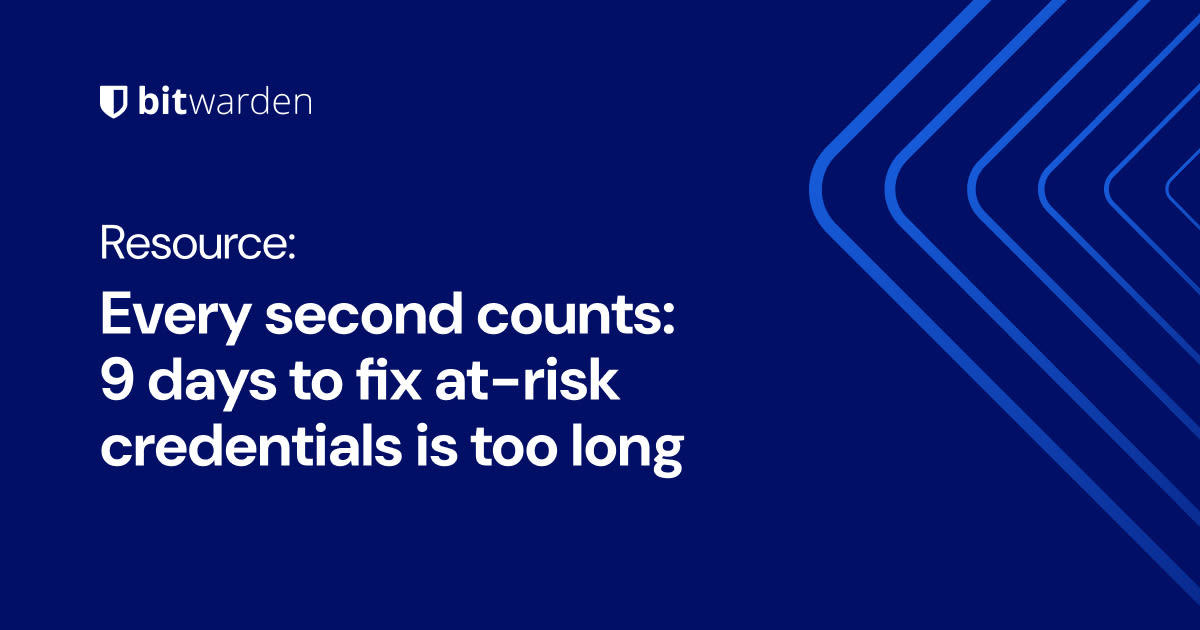
R E P O R T
In January 2025, Bitwarden conducted a survey of IT managers to understand their pain points concerning password health visibility and remediation.
Key findings:
It takes businesses an average of 9 days to update at-risk credentials after detecting an issue
Almost half of IT admins report their current system for monitoring password health and access is ineffective
68% of respondents cite employee motivation as the biggest challenge when implementing password best practices
67% of IT admins say credential access management is very important for their business
Read the full report.
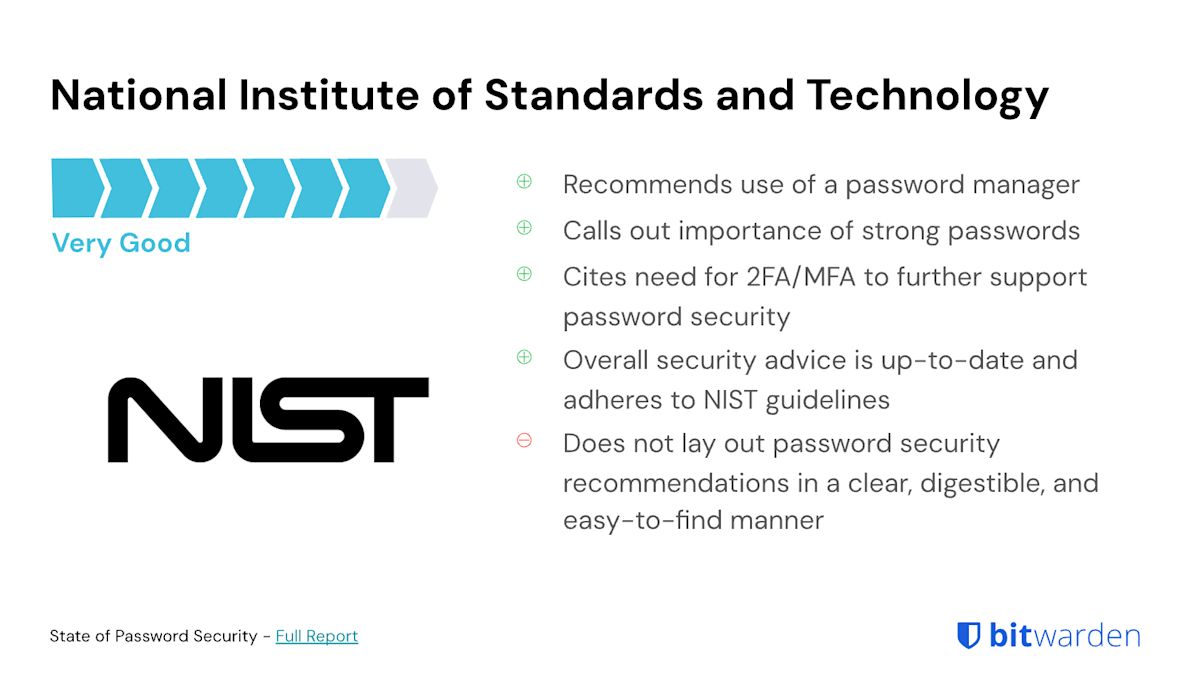
R E P O R T
In January 2025, Bitwarden assessed the state of password security among U.S. federal agencies. This report ranks agencies along a spectrum using a password security rating system.
Read the full report or view the presentation for more information.
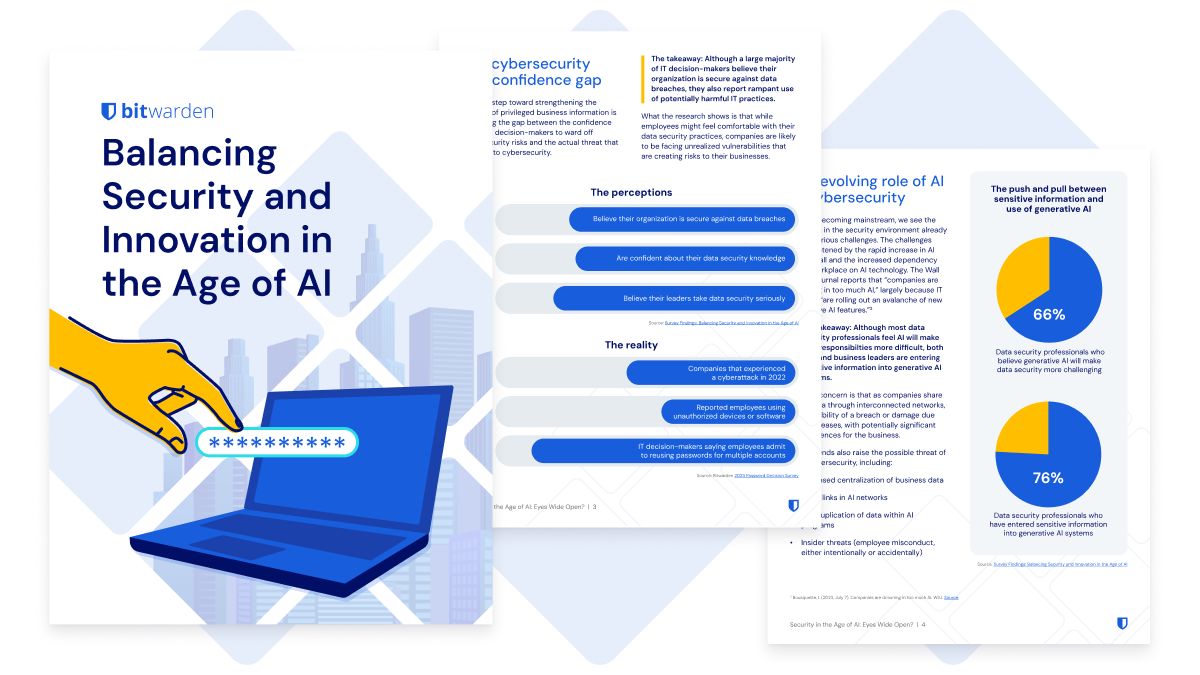
E B O O K
AI has unlocked a world of new innovations and unexplored opportunities for businesses. However, balancing the potential of AI and all of its innovations with the need for security can often feel daunting. This eBook reveals recent survey findings to help security professionals ensure their organizations remain innovative while keeping their data safe. The results of this research shed meaningful light on:
The cybersecurity overconfidence gap
The evolving role of AI in cybersecurity
What organizations can do to safeguard sensitive data
Read the eBook or view the presentation.
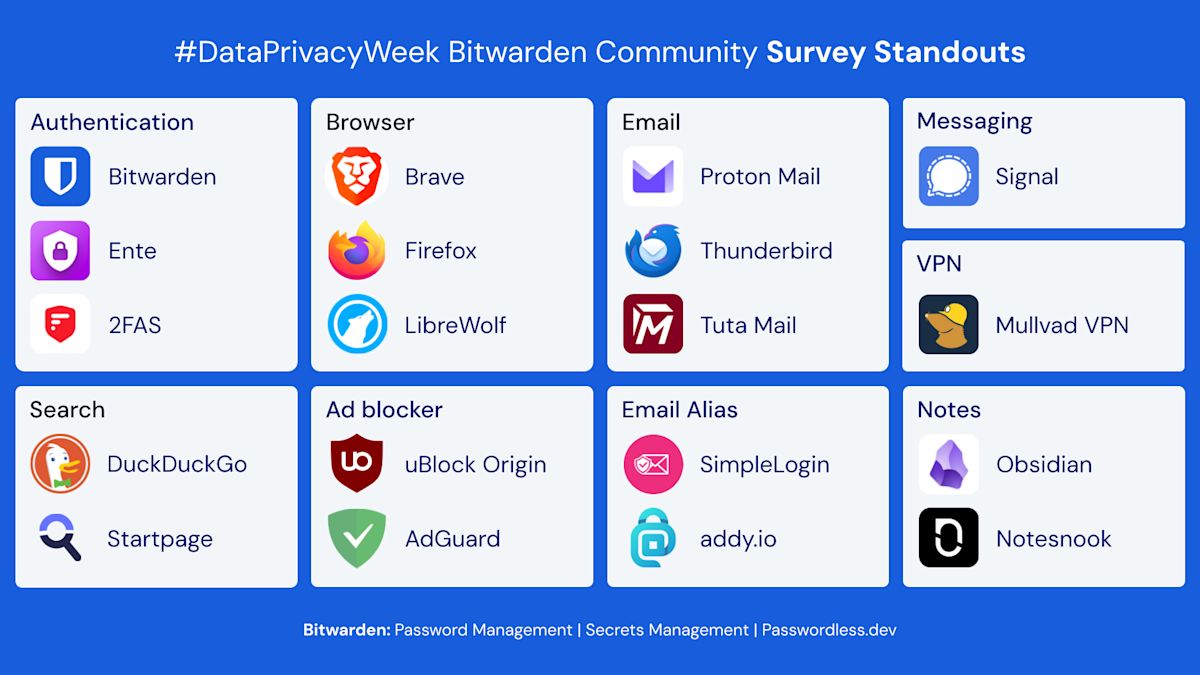
S U R V E Y
The fifth annual Data Privacy Week survey ranks the privacy-centric tools most recommended by the Bitwarden community. Over 3,500 users shared their app recommendations and thoughts on data privacy challenges.
Key findings:
The integrated Bitwarden authenticator was the #1 choice for favorite authenticator with 28% of the vote, overtaking the previously held top spots from Authy, Aegis, and Yubico
90% feel some concern about how generative AI will make data privacy more difficult
42% said Brave was their favorite browser
Read the blog or view the presentation.
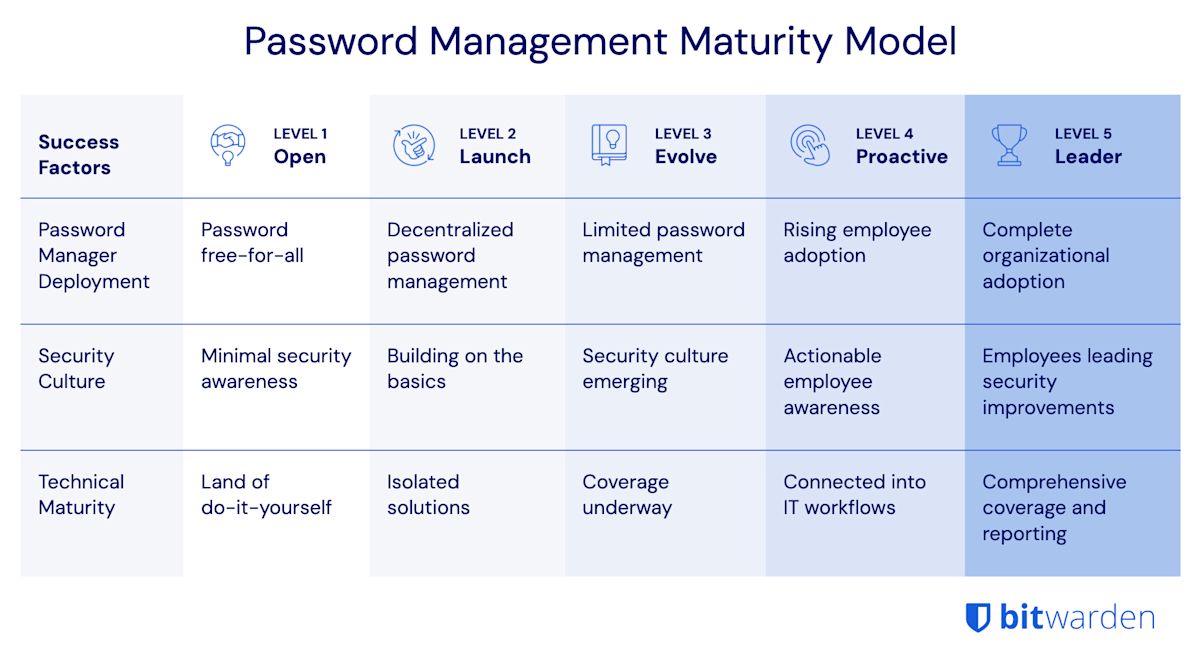
R E P O R T
Organizations that wish to strengthen security by deploying an enterprise-wide password manager can ensure better resilience by assessing key areas for improvement through the following password management maturity model. This framework helps organizations understand their password manager maturity level — based on their current operations — and identify what steps are necessary to improve their existing classification.
Review the model.
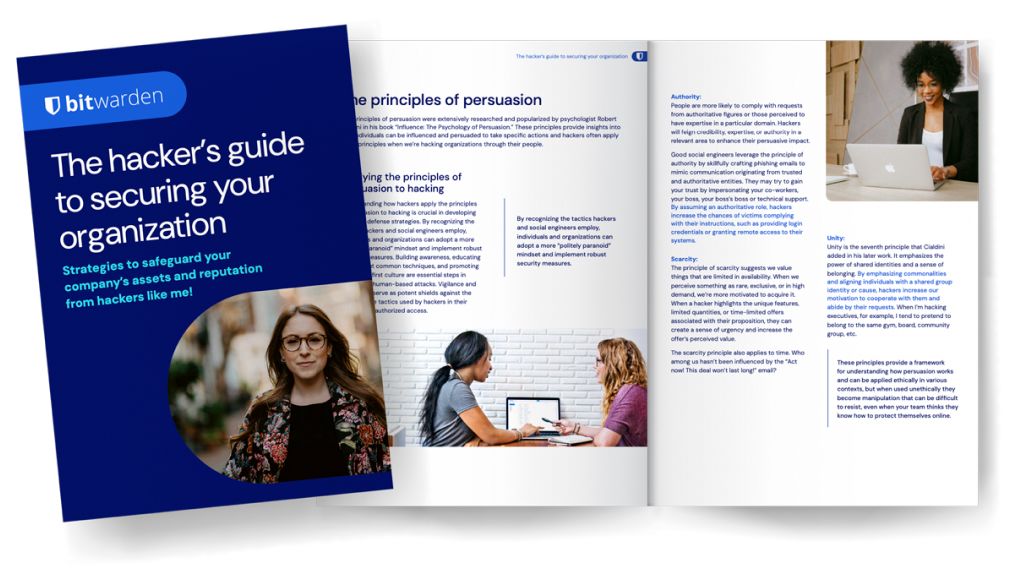
E B O O K
Bitwarden partnered with friendly hacker Rachel Tobac to deliver strategies to safeguard your company’s assets and reputation from bad actors. This eBook will give you the knowledge and tools needed to catch even the most cunning of hackers and preserve the integrity of your organization’s assets.
Read the eBook.

I N F O - T E C H R E P O R T
Discover how Bitwarden empowers enterprises with trusted open-source security and stands out as a top choice for enterprise data protection.
Read the report.
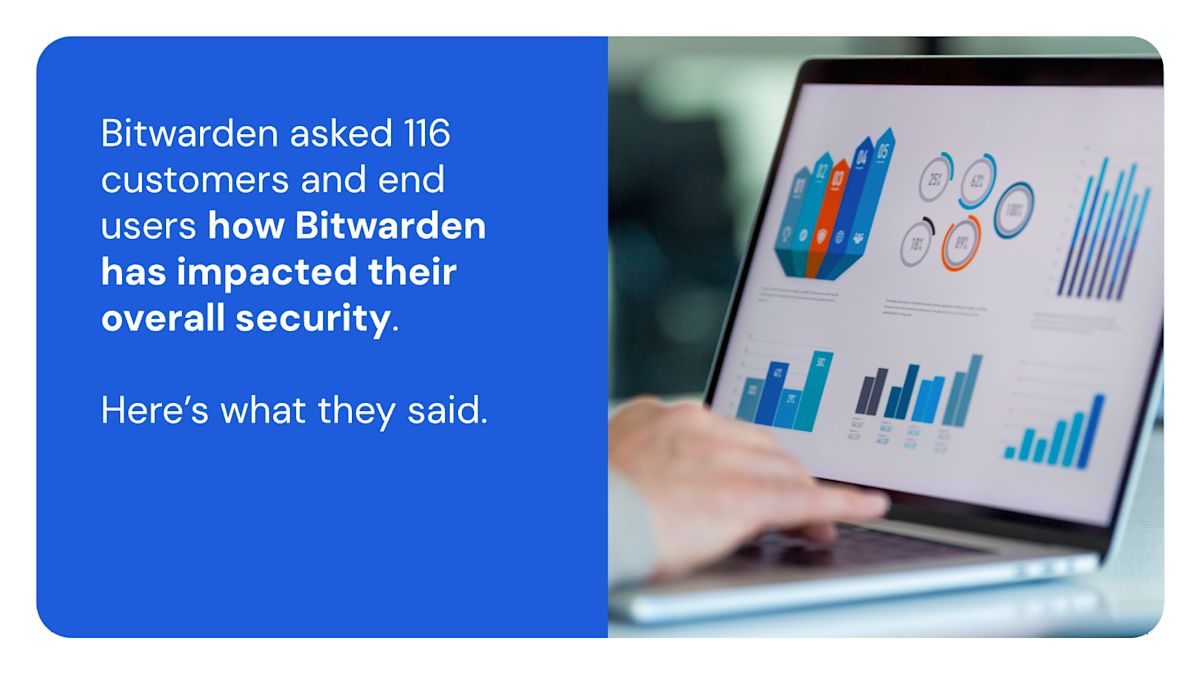
R E P O R T
In 2024, Bitwarden surveyed enterprise end users and IT admins about the impact Bitwarden Password Manager has had on their lives and organizations.
Key findings:
96% of all respondents say Bitwarden has improved their security posture
81% of all customers have reduced reused passwords since using Bitwarden
45% say they’ve eliminated more than 15 reused passwords
Read the full report or view the presentation.
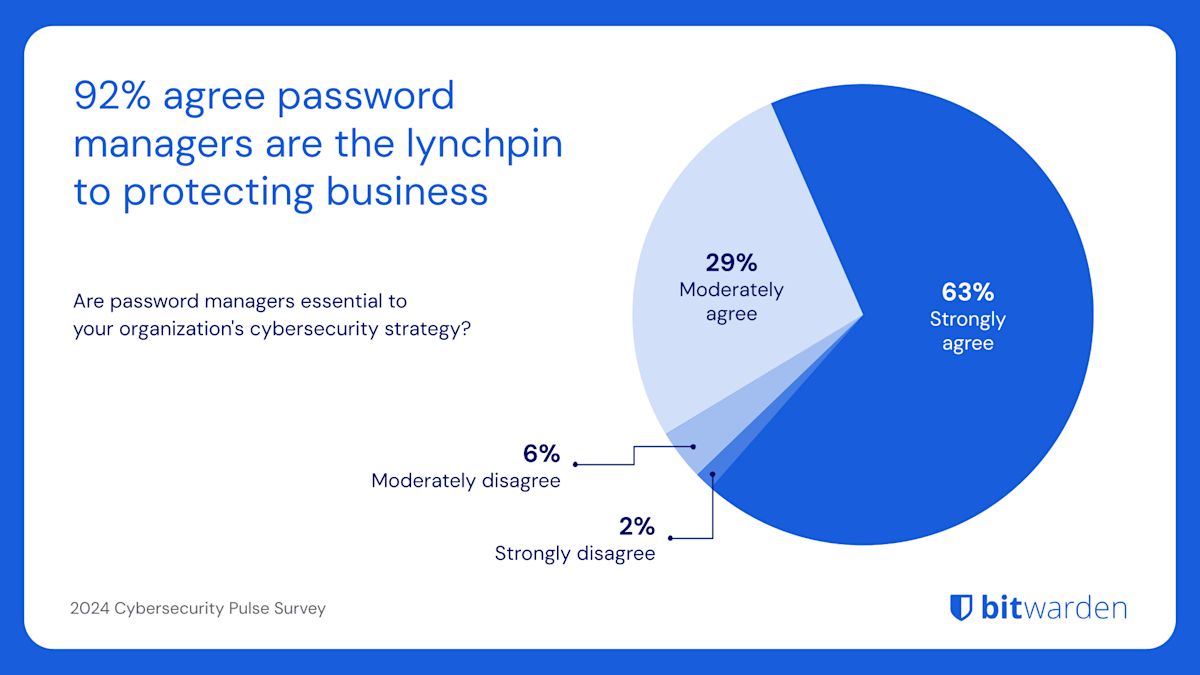
S U R V E Y
Bitwarden and Researchscape International surveyed over 1,100 IT and cybersecurity leaders across industries to uncover the latest cybersecurity trends and threats. These findings highlight growing concerns about sophisticated social engineering tactics, generative AI risks, and third-party supply chain vulnerabilities.
Key findings:
89% of respondents are concerned about existing and emerging social engineering tactics that use generative AI.
55% expressed high concern about third-party supply chain attacks originating from vendors, partners, or customers.
63% agree that, without a password manager, their IT teams would struggle to teach and enforce best practices across their organizations.
Read the resource page or view the presentation.
View past Password Decisions Survey results: 2023, 2022, 2021
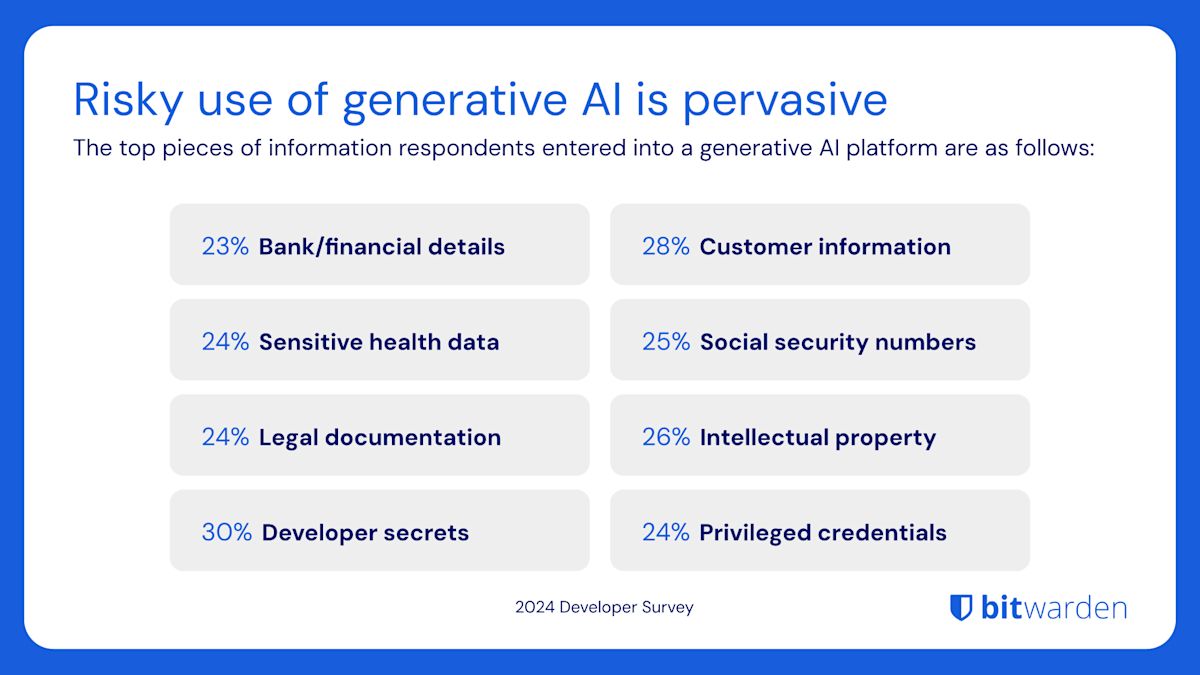
S U R V E Y
Bitwarden surveyed more than 600 developers to understand how they perceive and implement security best practices. The survey also polled attitudes and adoption practices related to IT security technologies and trends, including passwordless authentication, secrets management, and the cybersecurity risks associated with the rise of generative AI.
Key findings:
78% of developers identify AI as a security risk, yet continue to input sensitive credential, financial, and health data into generative AI platforms like ChatGPT.
91% of developers undergo security training annually, yet 21% engage in risky behavior.
60% of developers manage 100+ secrets, yet practices like hard-coding secrets in source code (65%) and keeping secrets in clear text (55%) prevail.
Read the resource page or view the presentation.
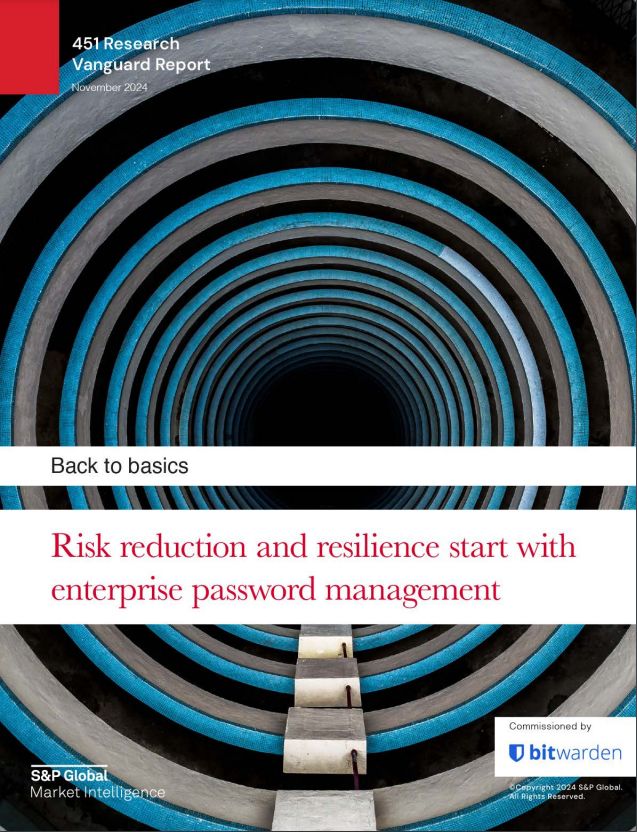
R E P O R T
Risk reduction and resilience start with enterprise password management
Enterprises can immediately benefit from basic foundations in password management and authentication. Strong password management and multifactor authentication that fit employees' work styles are the foundation of simpler Identity and Access Management. The simplest solutions are most likely to be widely accepted and successfully deployed. Effective security solutions that ensure compliance and resilience are those embraced by enabled stakeholders throughout the enterprise.
Read the full report.
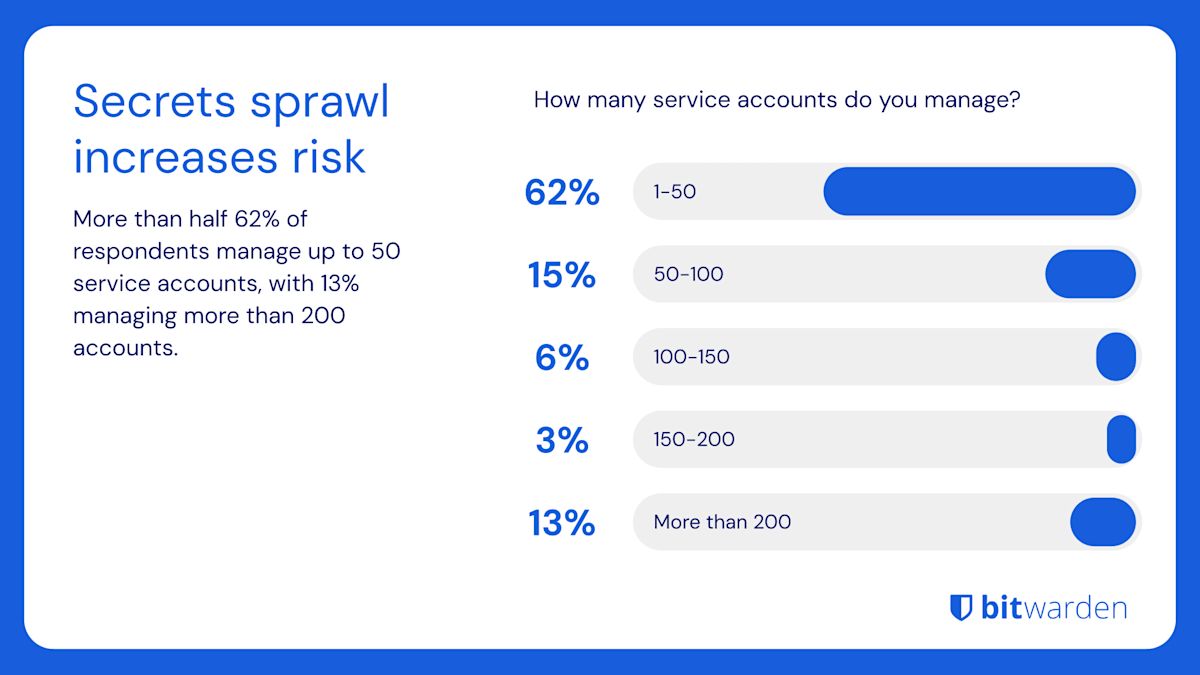
P O L L
Bitwarden surveyed over 100 developers to gain insights into secrets management practices, challenges, and concerns. The poll revealed a rapidly growing need for a secure secrets management solution to help protect privileged credentials, streamline operations, and prevent data breaches.
Read the resource page or view the presentation.
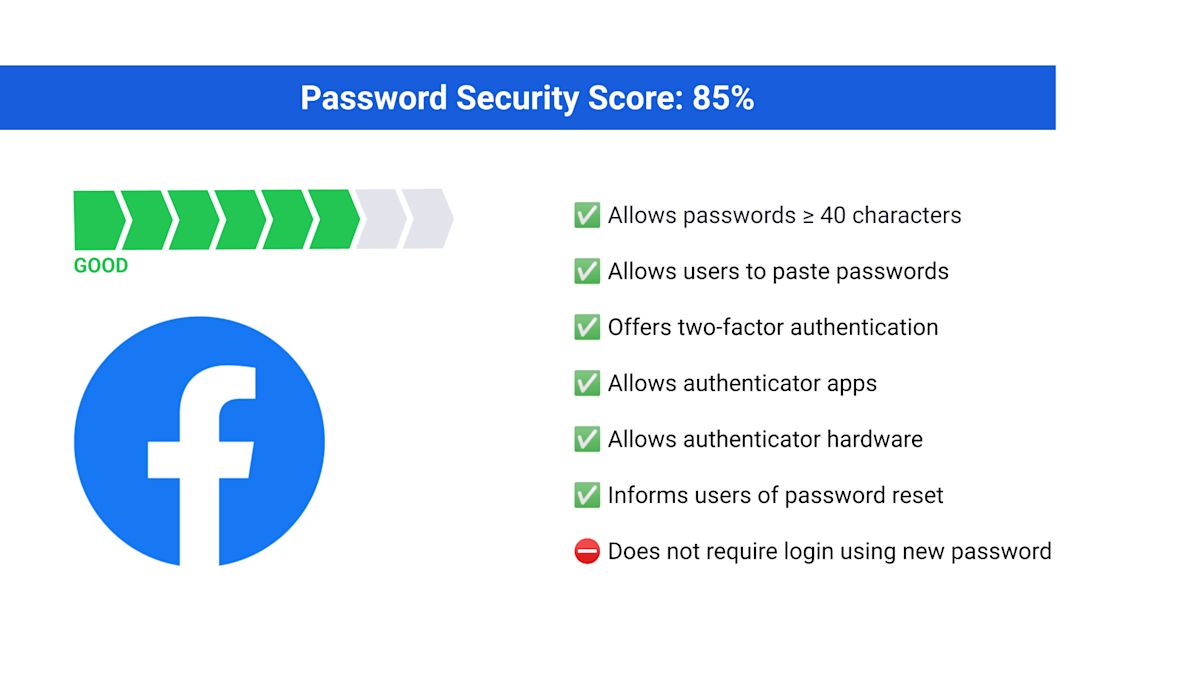
R E P O R T
Bitwarden evaluated the security-friendliness of the password systems of the top 5 most downloaded U.S. social media apps.
Read the blog to see how the leading companies in the U.S. scored.
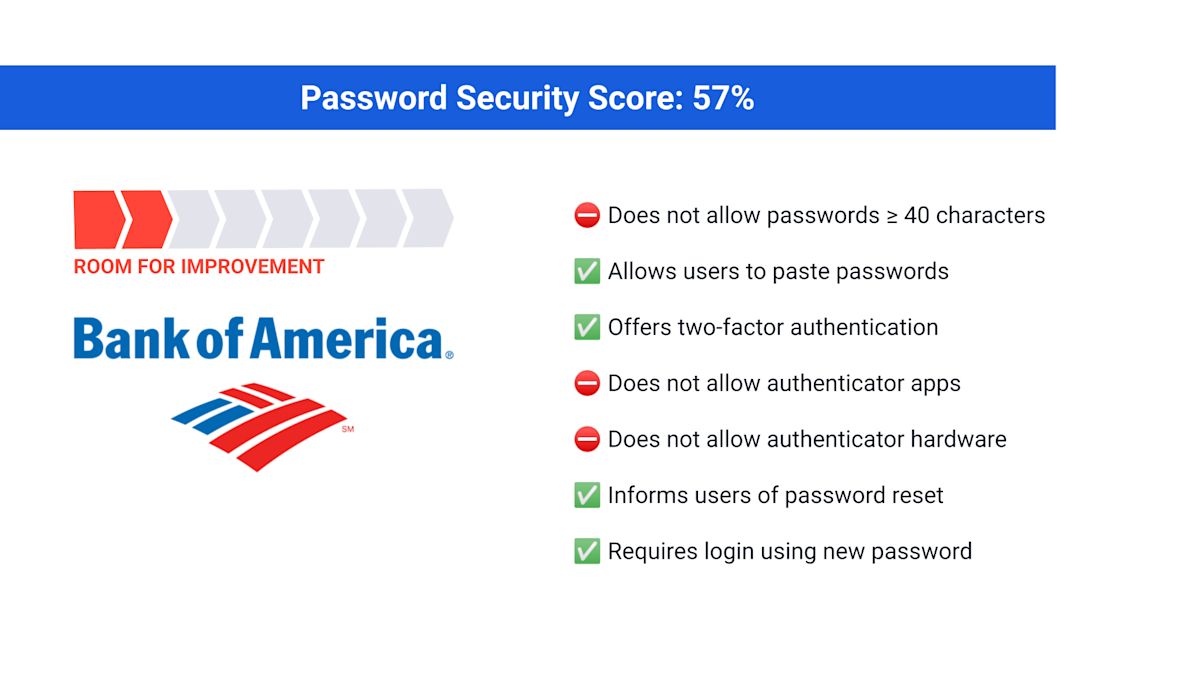
R E P O R T
Bitwarden evaluated the security-friendliness of the password systems of the top 5 most downloaded U.S. bank apps.
Read the blog to see how the leading banks in the U.S. scored.
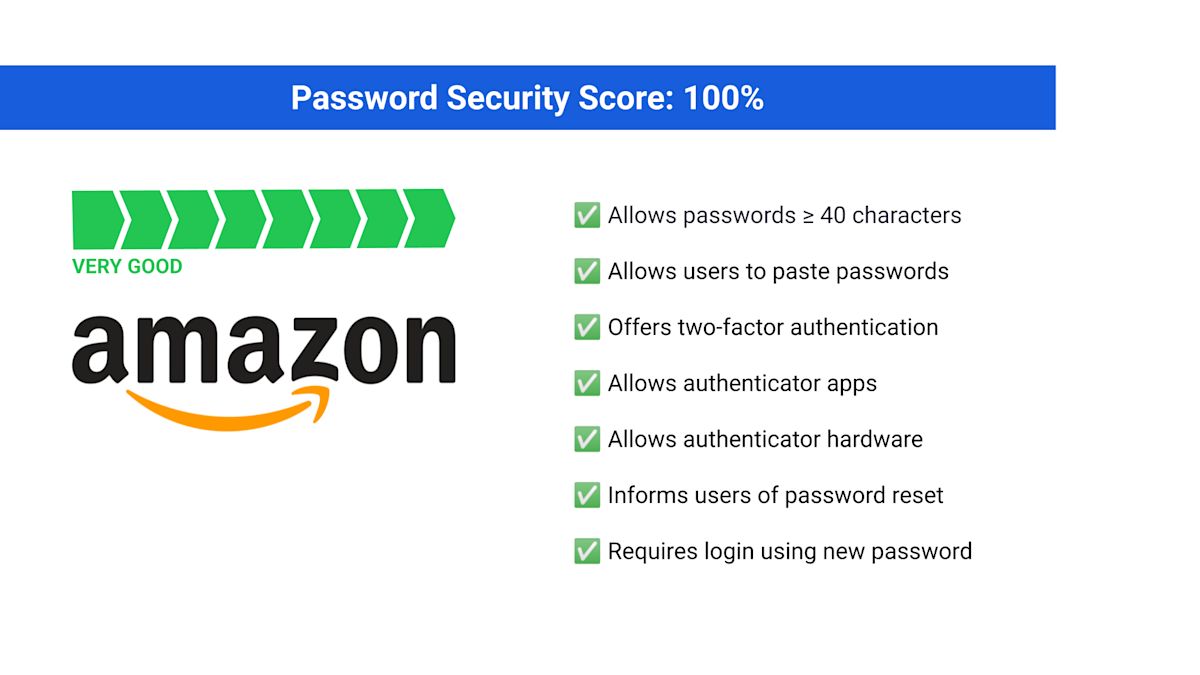
R E P O R T
Bitwarden evaluated the security-friendliness of the password systems of the top 5 most visited e-commerce sites in the United States ranked by total web traffic.
Read the blog to see how the most visited e-commerce sites in the U.S. scored.
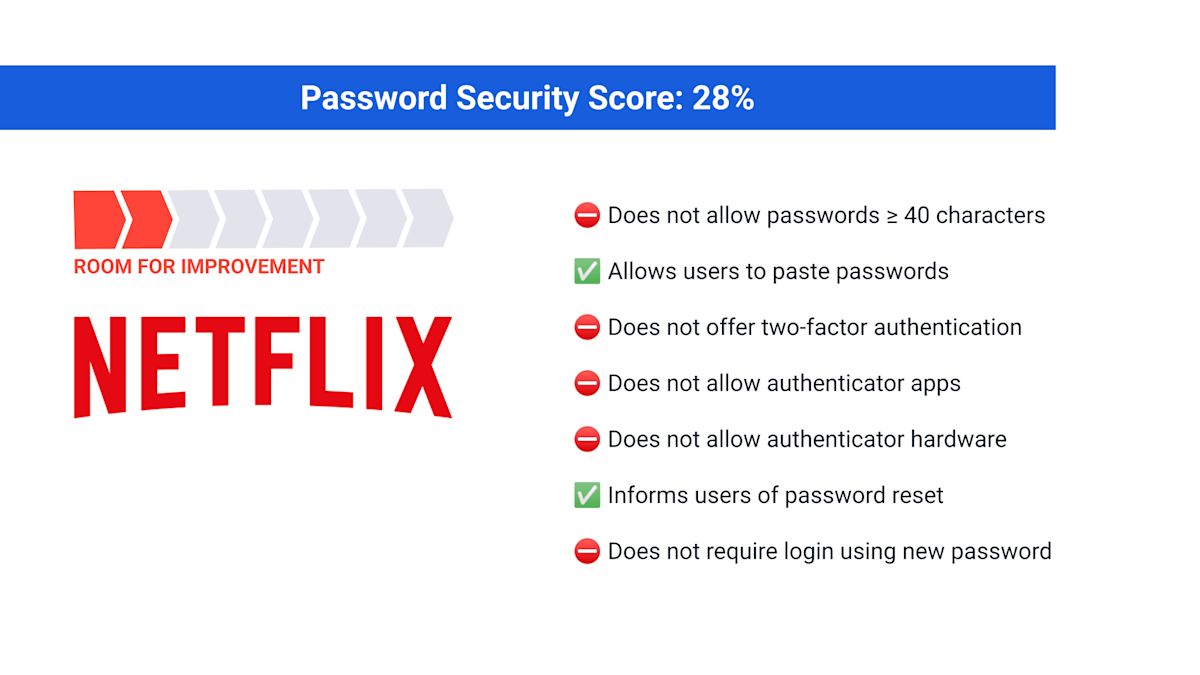
R E P O R T
Bitwarden evaluated the security-friendliness of the password systems of the top 5 most used streaming services.
Read the blog to see how the most used streaming services in the U.S. scored.
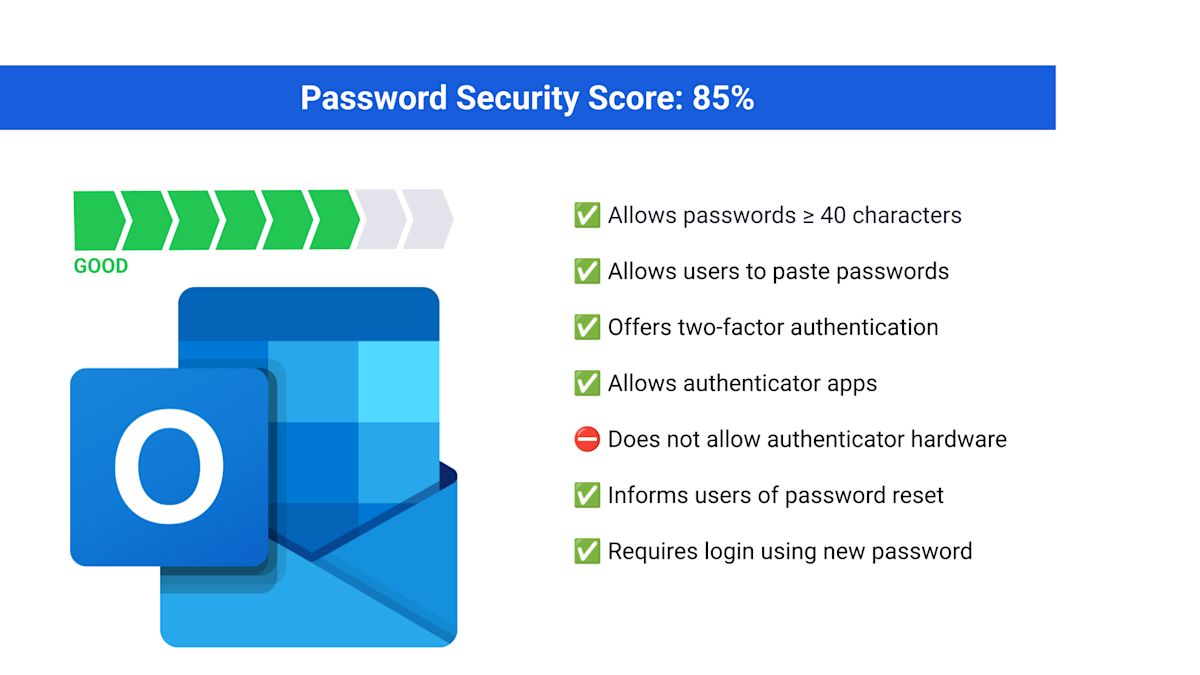
R E P O R T
Bitwarden evaluated the security-friendliness of the password systems of the top 5 most used personal email services.
Read the blog to see how the most used email services in the U.S. scored.
